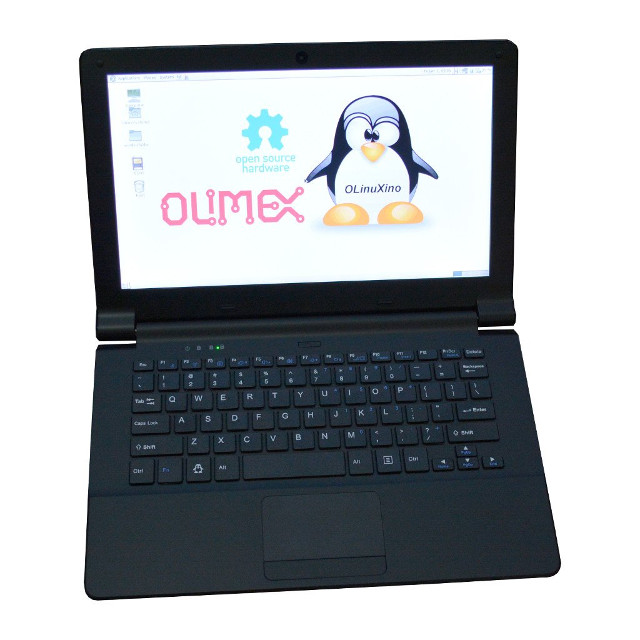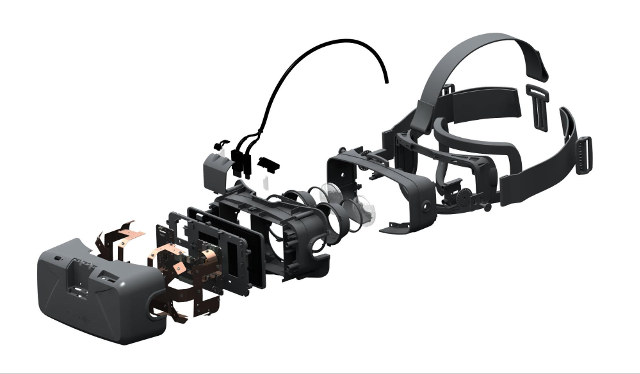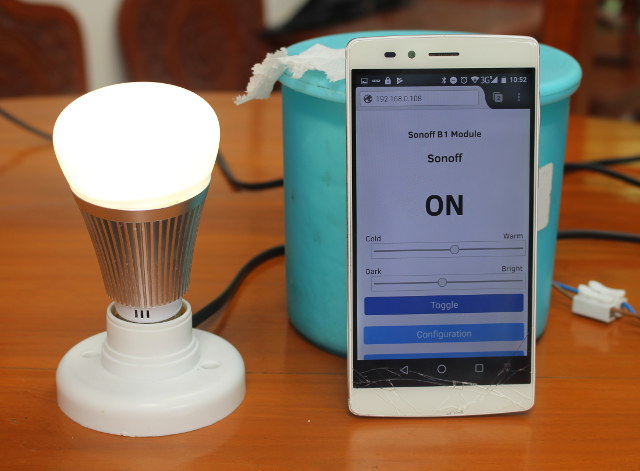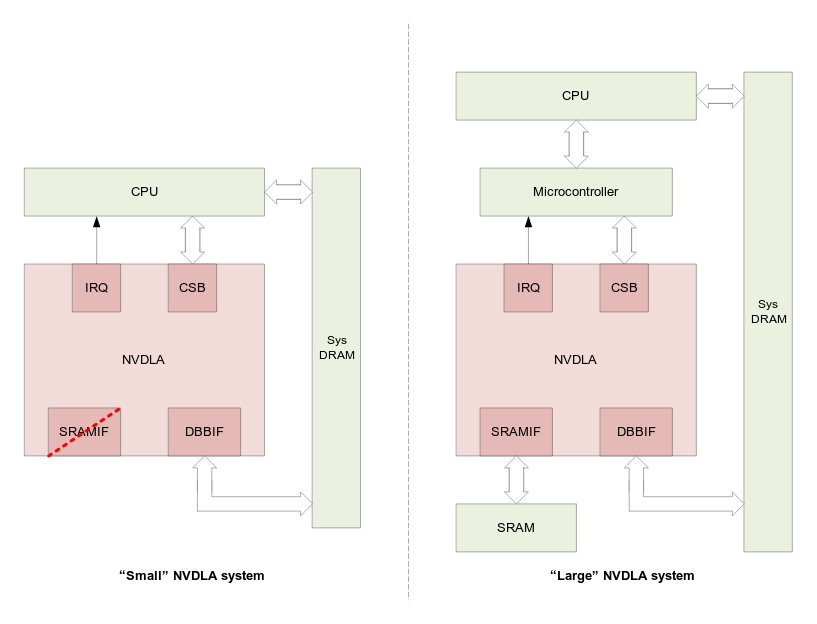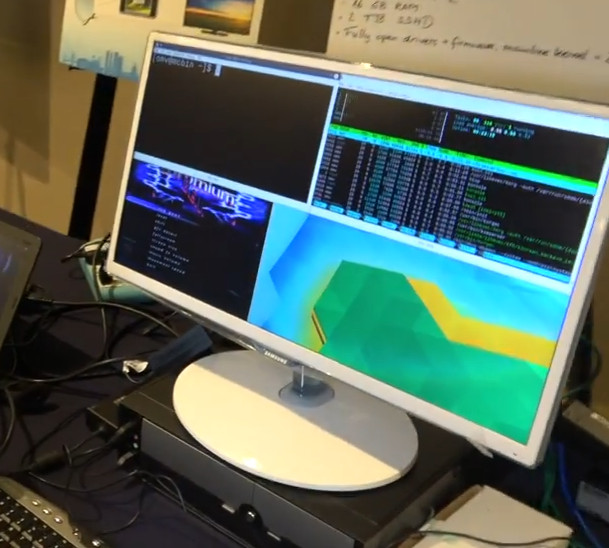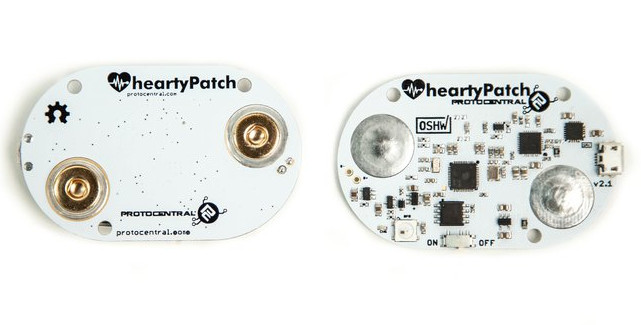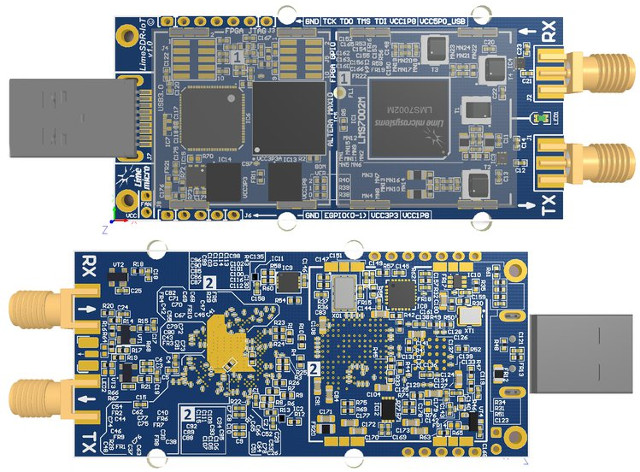Olimex has been working on their open source hardware TERES-I DIY laptop since last year. The laptop is supposed to come in kit form, so that you can build it yourself. Every board and most parts are open source to let your easily repair it, or improve it by adapting the part to your own needs. The company has now launched the laptop kit for 240 Euros in black or white. Olimex TERES-I laptop updated specifications: SoC – Allwinner A64 quad core ARM Cortex-A53 processor @ 1.2 GHz with Mali-400MP2 GPU System Memory – 2GB DDR3L Storage – 16 GB eMMC Flash, micro SD slot Display – 11.6″ LCD display with 1366×768 resolution Video Output – 1x HDMI 1.4 port Audio – Via mini HDMI, 3.5mm audio jack, 2x speakers, microphone Connectivity – 802.11 b/g/n WiFi up to 150Mbps, Bluetooth 4.0 LE USB – 2x USB port ports Front camera […]
Oculus Rift Virtual Reality Development Kit 2 Becomes Open Source Hardware
Oculus Rift DK2 virtual reality headset and development kit started to ship in summer 2014. The DK2 is kind of VR headset that is connected to a more powerful computer via USB and HDMI, includes hardware for positional tracking, a 5″ display ,and two lenses for each eye. Since then the company has been purchased by Facebook, and they’ve now decided to make the headset fully open source hardware. The release includes schematics, board layout, mechanical CAD, artwork, and specifications under a Creative Commons Attribution 4.0 license, as well as firmware under “BSD+PATENT” licenses which you’ll all find on Github. The release is divided into four main folders: Documentation with high-level specifications for the DK2 headset, sensor, and firmware. Cable with schematics and high level specifications for the cables. Custom assembly that would be hard to recreate from source. Allegedly the most complex part of the design Sensor with […]
Purism Librem 5 Open Source Linux Smartphone Meets its 1.5 Million Dollars Funding Target
Back in the summer, we reported about Purism Librem 5, a privacy-focused, open source Linux smartphone. The hardware has not been developed yet, at the time the company was still considering either i.MX 6 Cortex A9 processor or i.MX8 Cortex A53 processor for the phone, and asked for 1.5 million dollars in their self-managed crowdfunding campaign to get the phone delivered in 2019. The project was interesting but with the current status for the project, amount to be raised, and delivery timeline, it was a long shot. But it turns out there’s some demands for smartphones outside of Android and iOS ecosystem, and since then, KDE and the GNOME foundation have joined the project leading to more coverage & people getting involved, and Librem 5 phone is now fully funded with 13 days to go. The processor will likely be NXP i.MX 8M Quad quad core Cortex A53 SoC, as […]
Review of Sonoff B1 Smart RGB Light Bulb – Part 2: Sonoff-Tasmota Firmware
I’ve already reviewed Sonoff B1 light bulb using the stock firmware combined eWelink app for Android, and as promised in the first part of the review, I’ve also tested the ESP8285 based WiFi light bulb with Sonoff-Tasmota open source firmware, and report my findings in this new post. Before we can play with the new firmware, we need to install it, and I’ve just explained how to upgrade Sonoff devices to Sonoff-Tasmota firmware either using some soldering skills and a USB to serial board, or some network configuration skills and perform an OTA update using ITEAD Studio/eWelink original firmware update mechanism. So for this part of the review, I’ll assume we have just freshly update the light bulb with Sonoff-Tasmota using the binary images released by the developer. First, you’ll need to find the IP address of the light bulb with your router or tools like nmap or arp, and […]
NVIDIA Unveils Open Source Hardware NVDLA Deep Learning Accelerator
NVIDIA is not exactly known for their commitment to open source projects, but to be fair things have improved since Linus Torvalds gave them the finger a few years ago, although they don’t seem to help much with Nouveau drivers, I’ve usually read positive feedback for Linux for their Nvidia Jetson boards. So this morning I was quite surprised to read the company had launched NVDLA (NVIDIA Deep Learning Accelerator), “free and open architecture that promotes a standard way to design deep learning inference accelerators” The project is based on Xavier hardware architecture designed for automotive products, is scalable from small to large systems, and is said to be a complete solution with Verilog and C-model for the chip, Linux drivers, test suites, kernel- and user-mode software, and software development tools all available on Github’s NVDLA account. The project is not released under a standard open source license like MIT, […]
MACCHIATOBin based DIY ARM Desktop, DragonBoard 820c based DIY ARM Laptop (Video)
2017 may be the year of the (ARM based) Linux desktop, sort of. We’ve already seen GIGABYTE ARM development PC powered by a Socionext SC2A11 Synquacer 24-core ARM Cortex A53 processor that will be available in December, and apparently working fairly well already. But there are even more options, as Bernhard Rosenkränzer (Bero) from the Linaro Mobile Group, and unofficial Linaro superstar, has decided to create his own ARM based desktop and laptop, based on respectively MACCHIATOBin board with a Marvell ARMADA 8040 quad core Cortex A72 processor, and DragonBoard 820c board with a Qualcomm Snapdragon 820 quad core Krait processor. Since MACCHIATOBin board complies with mini-ITX form factor, he could simply use off the shelf parts with a standard desktop case with power supply, NVIDIA or AMD Radeon graphics card, 16GB memory modules, and a 2 TB SSD drive. The AMD Radeon card fried due to overheating, so the […]
HeartyPatch is an Open Source Wireless ECG Patch Powered by ESP32 WiSoC (Crowdfunding)
Smart health gadgets will soon have a bigger part to play in our lives, especially for health monitoring. It mainly started with fitness trackers, but now we are starting to see connected devices such as blood pressure monitors, including the upcoming watch like Omron HeartVue, thermometer, scales, vital sign monitoring systems, certified medical SBC‘s to allow engineers to developer their own medical applications, and even open source surgical robots. HeartPatch is one of those medical board that specifically aims at measuring ECG data, and sent it over Bluetooth or WiFi thanks to Espressif ESP32 WiSoC. HeartPatch specifications: SoC – Espressif Systems ESP32 dual core Tensilica LX6 processor with Wi-Fi/Bluetooth ECG Chip – Maxim MAX30003 analog front-end USB – 1x micro USB connector for programming, data, power, and battery charging Debugging – USB-UART bridge based on CP2104 Misc – Onboard Snap-on Buttons for disposable electrode pads, RGB LED, Battery – 450 […]
LimeSDR Mini is a $135 Open Source Hardware, Full Duplex USB SDR Board (Crowdfunding)
LimeSDR open source hardware software defined radio was launched last year with the promise of integration with Ubuntu Snap Store allowing to easily download and install various radio implementations such as LTE, WiFi, Bluetooth, LoRa, etc… It was offered for $200 and up as part of a crowdfunding campaign, but Lime Microsystems is back on CrowdSupply with a cheaper and low end version aptly called LimeSDR Mini.LimeSDR mini specifications: FPGA – Intel Altera Max 10 (10M16SAU169C8G) with 16K Logic gates, 549 KB M9K memory, 2,368 KB user flash memory Storage – 4 MB flash memory for data; 2x128KB EEPROM for RF transceiver MCU firmware and data RF Lime Microsystems LMS7002M RF transceiver Tx & Rx SMA connectors Frequency range – 10 MHz to 3.5 GHz RF bandwidth – 30.72 Mhz Sample Rate – 30.72 MSps with 12-bit sample depth Power Output (CW): up to 10 dBm USB – 1x USB […]


